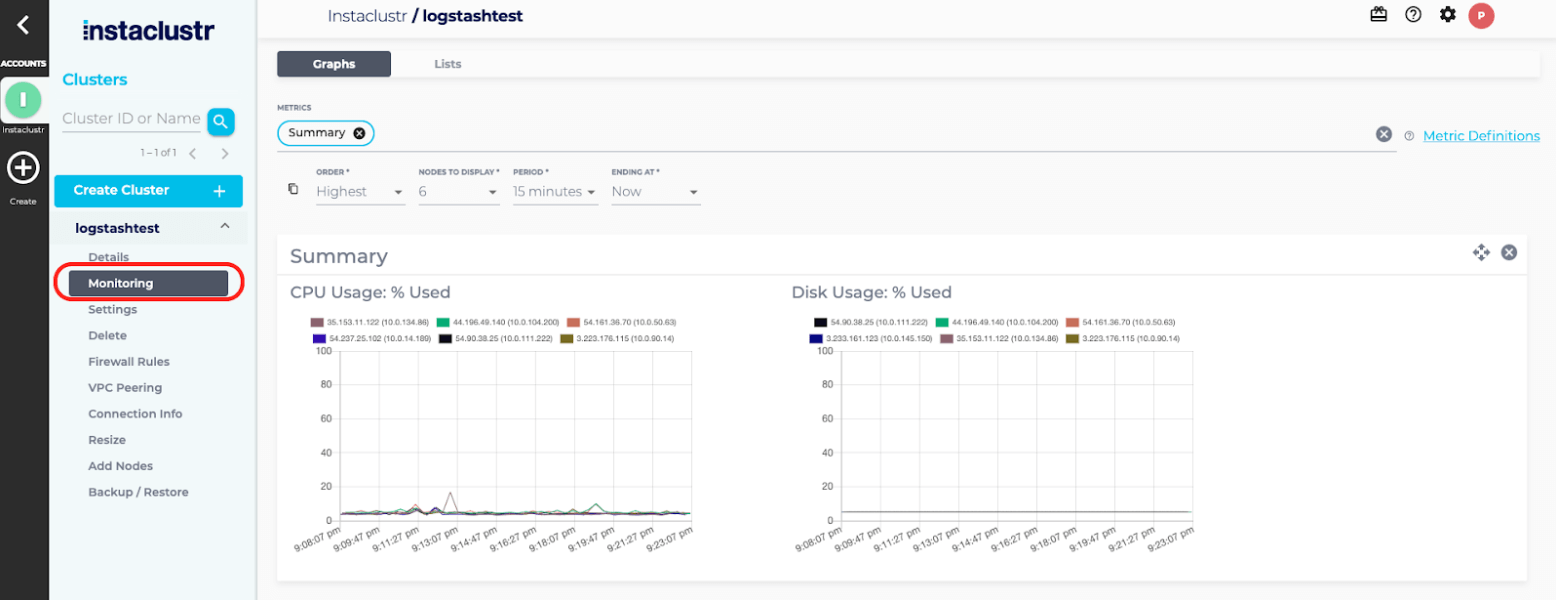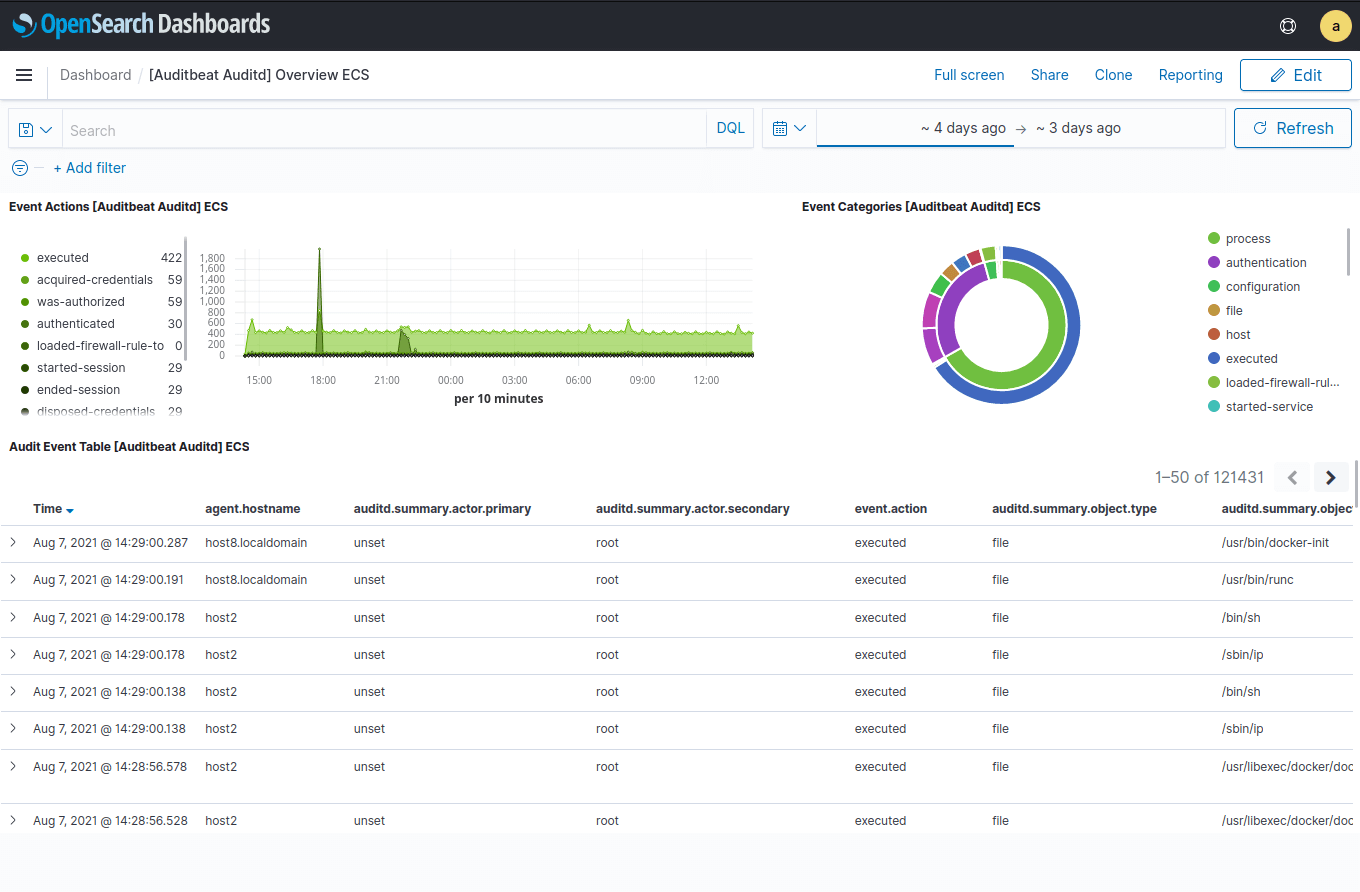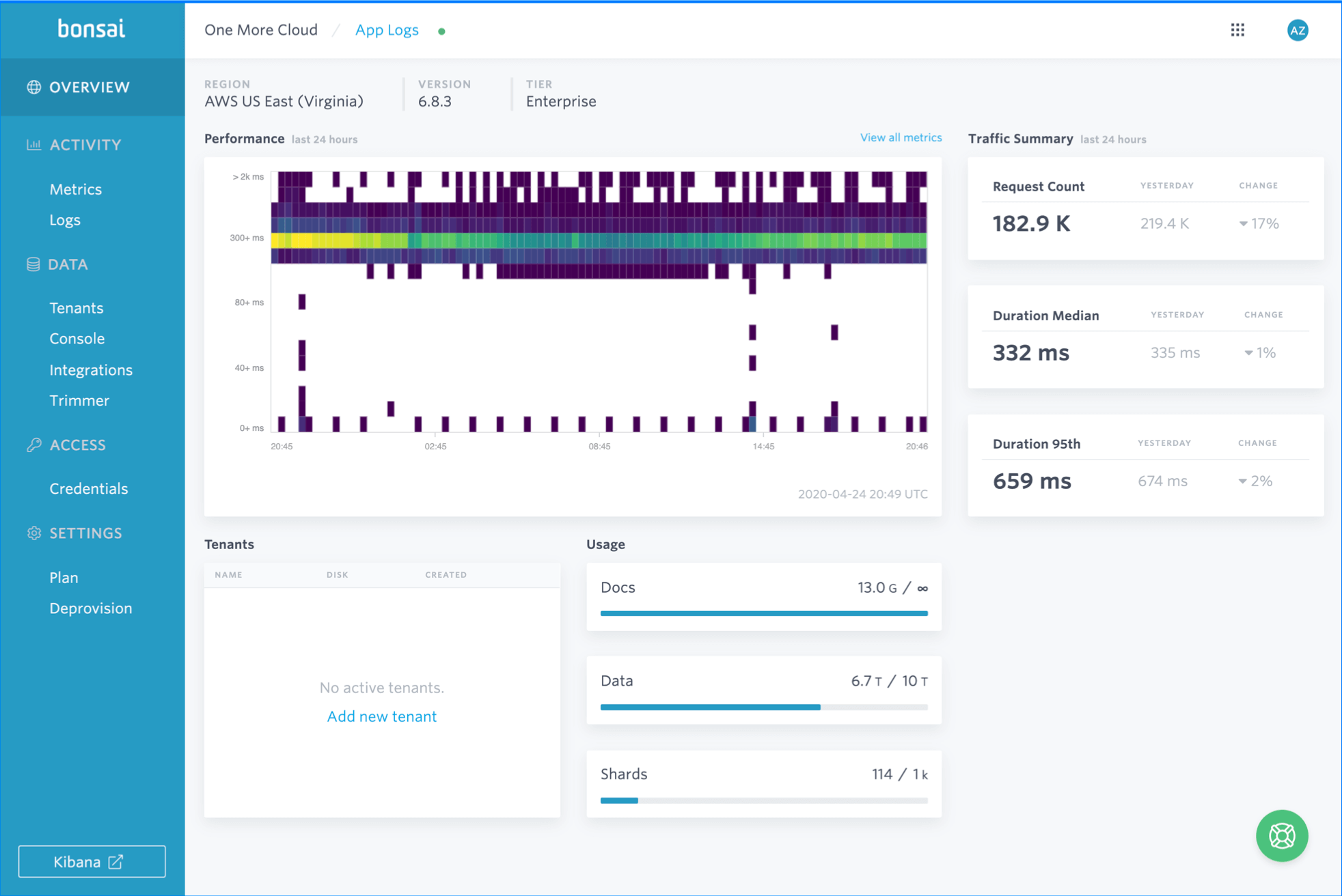What are cloud-based OpenSearch services?
Cloud-based OpenSearch services offer simplified deployment, operation, and scaling of OpenSearch clusters within cloud environments. Amazon, the main corporate sponsor of OpenSearch, provides its own managed OpenSearch service, and third-party providers like Instaclustr also offer managed OpenSearch services on various cloud platforms, including Google Cloud and Microsoft Azure.
OpenSearch itself is an open source search and analytics engine, originally forked from Elasticsearch, and is widely used for search, log analytics, and data visualizations. When offered as a cloud-based service, the provider assumes responsibility for infrastructure setup, server management, upgrades, and ensuring high availability, making it easier for organizations to deploy and scale their search solutions without deep operational overhead.
These services are for teams that require search and analytics capabilities but don’t want to invest in infrastructure or develop in-house expertise for scaling, securing, and maintaining OpenSearch clusters. The migration to cloud-based deployments also provides built-in redundancy and disaster recovery.
Key features and benefits of cloud-based OpenSearch services
Cloud-based OpenSearch services are managed platforms that host OpenSearch clusters without requiring users to handle infrastructure or operations. These services provide scalable, secure, and high-availability deployments for search, log analytics, and data visualization:
Key capabilities of cloud-based open source services include:
- Managed deployment: Automatic provisioning and configuration of OpenSearch clusters.
- Elastic scalability: Dynamically scale nodes and storage as workload grows.
- High availability: Cluster replication and failover across zones or regions.
- Security integration: Built-in authentication, access controls, and data encryption.
- Automated updates: Regular software patches and version upgrades.
- Vector database capabilities: Cloud-based OpenSearch services support vector search, enabling the development of applications like semantic search and genAI.
- OpenSearch dashboards: Integrated UI for querying, monitoring, and visualizations.
- Monitoring and alerts: Tools for cluster health checks, metrics, and incident alerts.
- Snapshot backups: Scheduled backups with restore options for disaster recovery.
- Multi-tenant support: Isolated workloads across projects or teams.
- Full API access: RESTful API endpoints for search, indexing, and admin tasks.
Key benefits of cloud-based open source services include:
- Scalability: Services like Amazon OpenSearch Service offer options to scale the cluster as needed, either manually by adding or removing nodes (EC2 instances) or automatically with Amazon OpenSearch Serverless.
- High availability: Many cloud providers offer Multi-AZ deployments, distributing nodes across multiple availability zones to ensure continued operation even if one zone fails.
- Cost-effectiveness: Cloud services often offer pay-as-you-go pricing models, tiered storage options (hot, warm, cold), and reserved instances to help optimize costs.
- Security: Cloud-based OpenSearch services offer robust security features like VPC support, fine-grained access control, encryption at rest and in transit, and integration with identity management services.
- Integration with the cloud ecosystem: These services integrate seamlessly with other cloud services, simplifying data ingestion, monitoring, and analytics workflows.
Notable cloud-based OpenSearch services
1. NetApp Instaclustr

NetApp Instaclustr for OpenSearch delivers a scalable, reliable, and fully managed search and analytics solution that empowers business to harness the full potential of data. Instaclustr ensures that complex data processing becomes effortless, so organizations can focus on turning insights into results.
Key features include:
- Open source freedom: Break free from vendor lock-in with NetApp Instaclustr’s commitment to open-source technology. Retain full control of your infrastructure and innovate with agility, without being tied to proprietary extensions.
- Fully managed service: Instaclustr provides a fully managed OpenSearch service available 24x7x365, handling everything from deployment and scaling to patching and monitoring.
- Advanced analytics and insights: Drive smarter decisions with real-time analytics, full-text search, log analysis, and interactive visualizations for exploring large datasets.
- Cost efficiency: Stay on budget with transparent pricing and tailored resources optimize costs, maximizing value without hidden fees.
- Vector database support: Enable advanced use cases like semantic search and machine learning with precise, high-performance vector database capabilities.
- Uncompromising security: Enterprise-grade encryption, strict access controls, and constant monitoring safeguard your data.
- Comprehensive monitoring: Gain full visibility of cluster health and system performance through advanced monitoring and alerting tools. Proactively identify and resolve issues to keep operations running at peak efficiency.

Source: NetApp Instaclustr
2. Amazon OpenSearch Service

Amazon OpenSearch Service is a managed solution for deploying, operating, and scaling OpenSearch clusters on AWS. It simplifies the use of OpenSearch by handling infrastructure, upgrades, and availability, allowing teams to focus on building search, analytics, and generative AI applications.
Key features include:
- Fully managed infrastructure: AWS handles installation, configuration, patching, updates, and monitoring, reducing operational complexity.
- Serverless option: Amazon OpenSearch Serverless eliminates the need to provision or scale infrastructure manually.
- High scalability: Supports clusters with up to 25 petabytes of data, 1,000 data nodes, and additional coordinator nodes.
- Integrated vector database: Enables vector search with fast response times, supporting AI applications such as RAG, semantic search, and personalized recommendations.
- Modern UI & dashboards: Provides a unified interface for querying and analyzing data using natural language and customizable workspaces.

Source: Amazon
3. Alibaba Cloud OpenSearch

Alibaba Cloud OpenSearch is a managed platform for building high-performance search services. It combines a distributed search engine with capabilities such as semantic query understanding, multimodal retrieval, vector indexing, and LLM-based conversational search.
Key features include:
- LLM-based conversational search: Helps build conversational search systems using built-in large language models (LLMs) trained on business-specific data to deliver secure and context-aware results.
- Multimodal search support: Retrieves and displays search results including text, images, and URLs.
- Visualized development interface: Provides industry-specific templates and drag-and-drop UI to develop search services without writing code.
- Industry-tuned semantic analysis: Uses NLP models from Alibaba DAMO Academy for query understanding, including synonym handling, spelling correction, and named entity recognition.
- Customizable ranking models: Offers rough and fine sort strategies with support for custom plug-in sort policies using the Cava language to tune search relevance.

Source: Alibaba
4. OVHcloud Managed OpenSearch

OVHcloud Managed OpenSearch is a managed, open source search and analytics service integrated into the OVHcloud Public Cloud platform. It offers fast indexing, search, and analytics without the operational overhead of managing OpenSearch clusters. Designed for developers and data teams, this service simplifies application development by handling infrastructure.
Key features include:
- Fully managed OpenSearch: Based on the official open source suite, OVHcloud handles deployment, maintenance, upgrades, and scaling of OpenSearch clusters.
- Pay-as-you-go pricing: Transparent billing based on usage, with traffic, IOPS, and backups included.
- OpenSearch dashboard included: Comes with the OpenSearch dashboard for querying, analyzing, and visualizing indexed data.
- Observability tools: Supports metrics collection with Prometheus, enabling monitoring and performance analysis of applications.
- Automatic backups: Provides automated backup to remote locations for disaster recovery and data resilience.

Source: OVHcloud
5. Bonsai

Bonsai is a managed search platform supporting Elasticsearch, OpenSearch, and SolrCloud. Unlike generic infrastructure providers, Bonsai pairs its managed hosting with a team of search engineering experts who handle tasks from tuning performance to resolving emergencies.
Key features include:
- Search-first platform: Fully managed Elasticsearch, OpenSearch, and SolrCloud clusters for indexing, querying, and analytics.
- Dedicated expert support: Access to search engineers with experience and direct communication via Slack and a dedicated account manager.
- Zero downtime upgrades: Performs version upgrades and patch deployments across separate staging, dev, and production clusters.
- 24/7 emergency response: Automated alerts are handled by on-call specialists, ensuring that cluster issues are resolved immediately.
- Cluster optimization: Bonsai continuously monitors the environment and fixes problems before they impact performance or availability.

Source: Bonsai
Considerations for choosing a cloud-based OpenSearch service [QG1]
Selecting the right cloud-based OpenSearch service involves more than comparing feature lists. Here are key factors that can influence your decision:
- Hosting region and data residency: Choose a provider with data centers in regions that align with your latency, compliance, or data sovereignty requirements.
- Deployment flexibility: Consider whether you need managed, serverless, or self-hosted cluster options, and how easily you can scale across environments.
- Performance requirements: Evaluate indexing and query throughput, response times, and ability to handle peak loads for each use case (e.g., log analytics vs. vector search).
- Cost transparency and pricing models: Review pricing details, including data storage, IOPS, data transfer, backups, and autoscaling charges to avoid unexpected costs.
- Security and compliance: Confirm support for encryption (at rest and in transit), role-based access control, audit logging, and compliance with standards like ISO, SOC 2, or GDPR.
- Support and SLAs: Assess availability of 24/7 support, escalation paths, uptime SLAs, and access to platform experts for troubleshooting and optimization.
- Ecosystem integration: Ensure compatibility with the existing observability stack (e.g., Prometheus, Grafana), log shippers (e.g., Fluentd, Logstash), and APIs.
- Vendor lock-in risk: Consider portability of the company’s data and configurations, and whether the platform enables easy migration between cloud environments or providers.
- Advanced capabilities: Look for features like vector search, AI integration, custom ranking, and dashboard extensibility if the application needs go beyond basic search.
Conclusion
Cloud-based OpenSearch services simplify the deployment and management of scalable search and analytics infrastructure. They eliminate operational overhead by offering managed environments with built-in features like security, high availability, and disaster recovery. This approach enables teams to focus on delivering data-driven applications while relying on the cloud provider to handle infrastructure complexity.